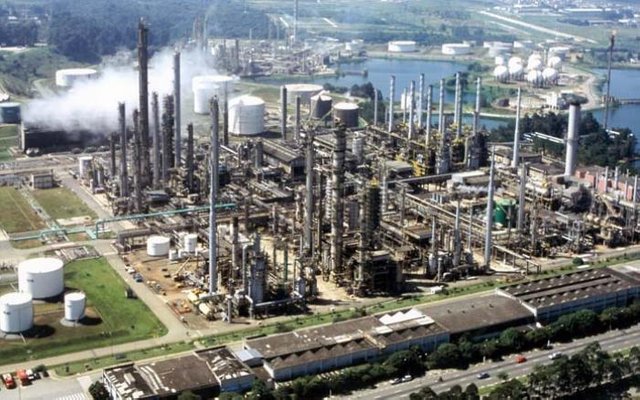We are all aware of the problems arising from the production of many chemicals that have become really necessary for modern society, as they contribute in various ways to maintain the standard of living we lead, just mention how fuels, plastics, pharmaceuticals, detergents, insecticides and fertilizers, among others, have become essential components for society.

The chemical industry is one of the least sustainable. Source: pxhere.com.
But while most of the chemical products we use every day have contributed to improving our living conditions, the fact is that they have had a strong impact on the planet, and now the chemical industry must face the difficult challenge of changing to more sustainable models and maintaining competitive products in the market.
And the transition to sustainable models that include circular economy models, waste recycling and the use or capture of the CO2 produced will require more efficient indicators to guide the selection of the technologies that offer the best performance with the lowest possible rate of emissions and waste.
Therefore, current models for quantifying the environmental impact of chemicals need to define more appropriate environmental thresholds, which has recently led to the concept of absolute environmental sustainability assessments (AESA), which seeks to quantify impacts in relation to some limit, for example, the acidification of a body of water would depend on its assimilation capacity.

Impact assessment according to the method. Source: Image prepared in powerpoint, contains public domain image
In this sense, researchers at the ETH Zurich have developed a multifactorial method based on this concept to evaluate the chemical industry, instead of considering only the carbon footprint as is done with current methods, here they also considered the effects on land use change, biodiversity loss, consumption and contamination of fresh water, among others. And in a study published in the journal Green Chemistry they show the results of the evaluation of 492 substances with this method, finding that all of them exceed the thresholds established to consider them safe and preserve the balance of the planet.
The results of the study reveal that most of the chemicals evaluated transgress to a large extent the planetary limits set, i.e. climate change - CO2 concentration and energy imbalance, among others, and 99.4% of the chemicals transgress at least one of these thresholds, at least none of them transgress all the limits, but only three can be considered sustainable according to the principles of the study, these being hexamethyldisilazane, selenium and trimethyl chloride.
Well, I suppose that finding that most of the chemicals evaluated were not sustainable is not surprising, since the chemical industry is not exactly characterized by having environmentally friendly means of production, in addition to the fact that in most cases the raw material is still obtained from fossil sources. And as long as oil continues to be exploited to obtain raw materials for other industries, these by-products can hardly be considered sustainable.

Products derived from fossil fuels are not sustainable. Source: wikimedia.org.
The permissible thresholds developed in the study, which are strongly related to anthropogenic greenhouse gas emissions, ocean acidification and the integrity of the biosphere, are the parameters most frequently exceeded by petroleum-based chemicals.
We have long known that the chemical industry must move away from its dependence on fossil-based feedstock, but considering only the carbon footprint of these products limits the problem only to their effect on climate change, and solutions could be limited in this aspect, shifting the environmental burden to another factor. For example, replacing oil with biomass would decrease CO2 emissions, but would increase the demand for water, fertilizer and soil to produce biomass in large quantities.
This is why more complete and comprehensive methods are needed to assess the sustainability of the chemical industry, and to be able to address solutions that achieve a balance with the environment's capacity to replenish raw materials and assimilate their waste, and not only address the problem from the point of view of the carbon footprint.
Thanks for coming by to read friends, I hope you liked the information. See you next time.

Great article!!! This article embellishes the platform of STEEMIT. However I think we are beginning to understand that we need to start producing in a sustainable way and some companies are already changing their way of doing business
Downvoting a post can decrease pending rewards and make it less visible. Common reasons:
Submit
Hello friend, thank you very much. Yes, some companies already anticipate that sustainability will be an important factor in the future and are preparing for it.
Downvoting a post can decrease pending rewards and make it less visible. Common reasons:
Submit